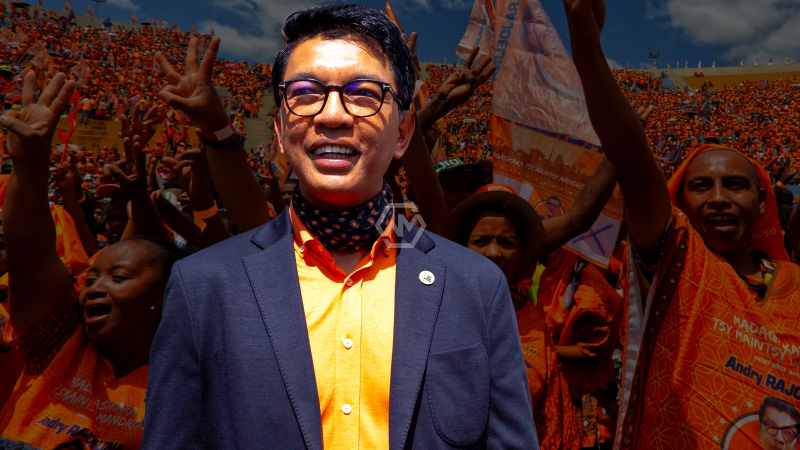- Madagascar has been in disturbance since media reports in June uncovered Rajoelina had obtained French ethnicity in 2014.
- They required the discretionary cycle to be suspended and for the worldwide local area to mediate.
- Turnout was a little more than 46%, down on the past official political race in 2018.
Madagascar President Andry Rajoelina has won re-appointment in the primary round of a voting form boycotted by practically all resistance up-and-comers, the political race commission said Saturday.
Rajoelina won 58.95 percent of the votes cast in the November 16 political race, as per the outcomes introduced by the survey body.
Madagascar’s President Won the Re-Election
Rajoelina, 49, first came to control in 2009 following a revolt that expelled previous president Marc Ravalomanana. He then, at that point, skirted the accompanying races just to get back in the saddle in 2018.
The 11 million electors needed to pick either Rajeolina or 12 different applicants. Ten of the occupant’s opponents wouldn’t crusade and encouraged citizens to disregard the polling form, marking it a sham.
Rajoelina, a previous city chairman of the capital Antananarivo, is blamed by opponents for debasement, ravenousness, and choosing not to see the plunder of the country’s regular assets, including its valuable rosewood backwoods.
“What results? What political race?” was the joint resistance reaction to a solicitation for input on Rajeolina’s triumph.
The resistance has not yet shown on the off chance that it will officially challenge the outcome and has not called for more road exhibits.
In the weeks paving the way to the vote, the resistance — including two previous presidents — drove close every day, to a great extent unapproved fights that were consistently scattered by police utilizing poisonous gas.
Under nearby regulation, the president ought to have lost his Madagascan identity, and with it, the capacity to lead the country, his adversaries said.
Resistance up-and-comers whined of an “institutional overthrow” for the occupant, blaming the government for working to reappoint Rajoelina.
Eight nations and associations including the European Association and the US communicated worry about the “lopsided utilization of power” to scatter resistance shows.
The resistance has decried inconsistencies, including shut surveying stations, an absence of polling booths, and the utilization of state assets by Rajoelina for his mission.
One of the two adversaries who officially stayed in the race, Siteny Randrianasoloniaiko, additionally upbraided “stressing oddities” which he said, “bring up genuine issues about the legitimacy of the outcomes”.
The outcomes actually must be approved by the High Established Court, the country’s most noteworthy court, in no less than nine days, during which requests in case of a test can be stopped.



